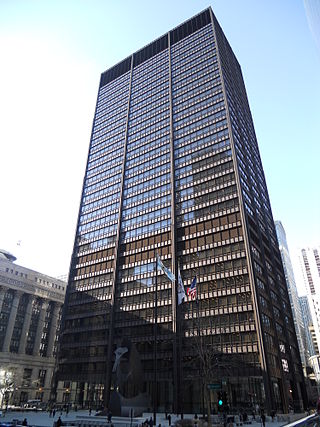In the United States, a state court has jurisdiction over disputes with some connection to a U.S. state. State courts handle the vast majority of civil and criminal cases in the United States; the United States federal courts are far smaller in terms of both personnel and caseload, and handle different types of cases.
A county court is a court based in or with a jurisdiction covering one or more counties, which are administrative divisions within a country, not to be confused with the medieval system of county courts held by the high sheriff of each county.

A justice of the peace (JP) is a judicial officer of a lower or puisne court, elected or appointed by means of a commission to keep the peace. In past centuries the term commissioner of the peace was often used with the same meaning. Depending on the jurisdiction, such justices dispense summary justice or merely deal with local administrative applications in common law jurisdictions. Justices of the peace are appointed or elected from the citizens of the jurisdiction in which they serve, and are usually not required to have any formal legal education in order to qualify for the office. Some jurisdictions have varying forms of training for JPs.

The Hawaiʻi State Judiciary is the official name of the judicial system of Hawaiʻi in the United States. Based in Honolulu, the Hawaiʻi State Judiciary is a unified state court system that functions under the Chief Justice of the Hawaiʻi State Supreme Court who is its administrator-in-chief.

The Civil Court of the City of New York is a civil court of the New York State Unified Court System in New York City that decides lawsuits involving claims for damages up to $25,000 and includes a small claims part for cases involving amounts up to $5,000 as well as a housing part for landlord-tenant matters, and also handles other civil matters referred by the New York Supreme Court. The court has divisions by county (borough), but it is a single citywide court.
The New Hampshire Circuit Court District Division is the "community court" of the U.S. state of New Hampshire, made up of one circuit for each County and is located in 36 cities and towns. The District Division has jurisdiction over all juvenile matters, domestic violence cases, violation and misdemeanor level offenses, small claims, landlord-tenant issues and other civil cases. Upon the creation of the District Court in 1963, the state Municipal Courts were effectively abolished. On July 1, 2011, the New Hampshire Circuit Court was created and consolidated the District Courts with the Probate Court and Family Division.
The Superior Court is the state court in the U.S. state of New Jersey, with statewide trial and appellate jurisdiction. The New Jersey Constitution of 1947 establishes the power of the New Jersey courts. Under the State Constitution, "'judicial power shall be vested in a Supreme Court, a Superior Court, County Courts and inferior courts of limited jurisdiction.'" The Superior Court has three divisions: the Appellate Division is essentially an intermediate appellate court while the Law and Chancery Divisions function as trial courts. The State Constitution renders the New Jersey Superior Court, Appellate Division the intermediate appellate court, and "[a]ppeals may be taken to the Appellate Division of the Superior Court from the law and chancery divisions of the Superior Court and in such other causes as may be provided by law." Each division is in turn divided into various parts. "The trial divisions of the Superior Court are the principal trial courts of New Jersey. They are located within the State's various judicial geographic units, called 'vicinages,' R. 1:33-2(a), and are organized into two basic divisions: the Chancery Division and the Law Division".
The First Judicial District is the judicial body governing the county of Philadelphia, Pennsylvania, United States. It consists of the Court of Common Pleas of Philadelphia County and the Philadelphia Municipal Court.
The government of New Mexico is the governmental structure of the state of New Mexico as established by the Constitution of New Mexico. The executive is composed of the governor, several other statewide elected officials and the governor's cabinet. The New Mexico Legislature consists of the House of Representatives and Senate. The judiciary is composed of the New Mexico Supreme Court and lower courts. There is also local government, consisting of county administrations, city governments, and special districts.

The Connecticut Superior Court is the state trial court of general jurisdiction. It hears all matters other than those of original jurisdiction of the Probate Court, and hears appeals from the Probate Court. The Superior Court has 13 judicial districts which have at least one courthouse and one geographical area court. Civil cases, administrative appeals, family matters, and serious criminal offenses are generally heard in a judicial district courthouse. All criminal arraignments, misdemeanors, felonies, and motor vehicle violations that require a court appearance are heard in one of the 20 geographical area courts.

The Judiciary of New York is the judicial branch of the Government of New York, comprising all the courts of the State of New York.

The Circuit Court of Cook County is the largest of the 24 judicial circuits in Illinois as well as one of the largest unified court systems in the United States — second only in size to the Superior Court of Los Angeles County since that court merged with other courts in 1998.
In the Nevada state court system, the Nevada District Courts are the trial courts of general jurisdiction, where criminal, civil, family, and juvenile matters are generally resolved through arbitration, mediation, and bench or jury trials.
The Unified Judicial System of Pennsylvania is the unified state court system of the Commonwealth of Pennsylvania.
The district courts are the ordinary trial courts of general jurisdiction under the law of Taiwan. Currently there are 22 district courts under the jurisdiction of the Republic of China (Taiwan).
District courts are courts of limited jurisdiction in the State of Michigan. They were established by the State Legislature in Act 236 of 1961 to consolidate the functions of several courts of limited jurisdiction such as traffic courts and municipal courts. In response, nearly all cities in the state have ceased operating a municipal court, except for the five Grosse Pointes in Wayne County; each has its own municipal court, except for Grosse Pointe Woods and Grosse Pointe Shores, which operate one jointly.

The Boston Municipal Court (BMC), officially the Boston Municipal Court Department of the Trial Court, is a department of the Trial Court of the Commonwealth of Massachusetts, United States. The court hears criminal, civil, mental health, restraining orders, and other types of cases. The court also has an appellate division which reviews questions of law that arise from civil matters filed in the eight divisions of the department.
The judiciary of Michigan is defined under the Michigan Constitution, law, and regulations as part of the Government of Michigan. The court system consists of the Michigan Supreme Court, the Michigan Court of Appeals as the intermediate appellate court, the circuit courts and district courts as the two primary trial courts, and several administrative courts and specialized courts. The Supreme Court administers all the courts. The Michigan Supreme Court consists of seven members who are elected on non-partisan ballots for staggered eight-year terms, while state appellate court judges are elected to terms of six years and vacancies are filled by an appointment by the governor, and circuit court and district court judges are elected to terms of six years.
The judiciary of Ohio is the branch of the government of Ohio that interprets and applies the law of Ohio, ensures equal justice under law, and provides a mechanism for dispute resolution. The court of last resort is the Ohio Supreme Court.
Magistrate judge, in U.S. state courts, is a title used for various kinds of judges, typically holding a low level of office with powers and responsibilities more limited than state court judges of general jurisdiction.







